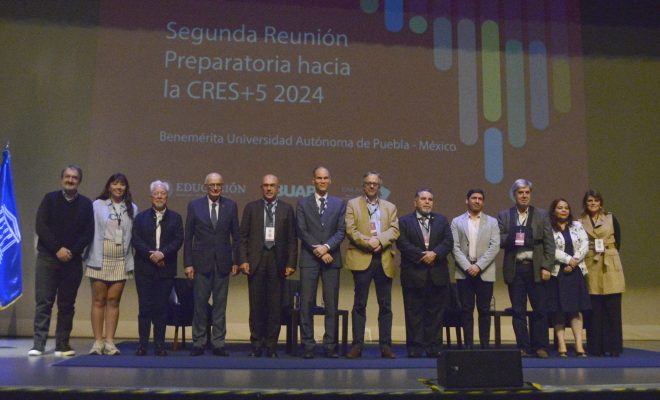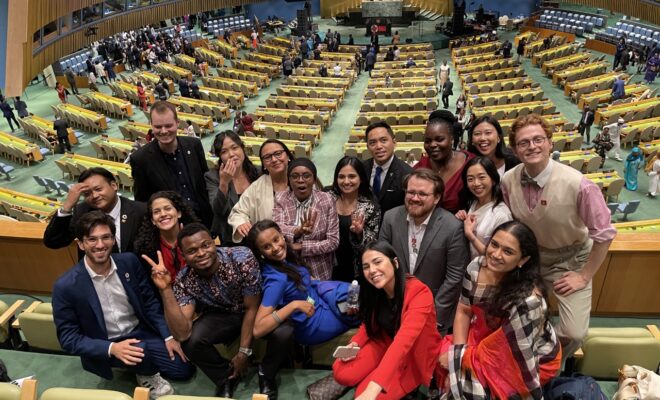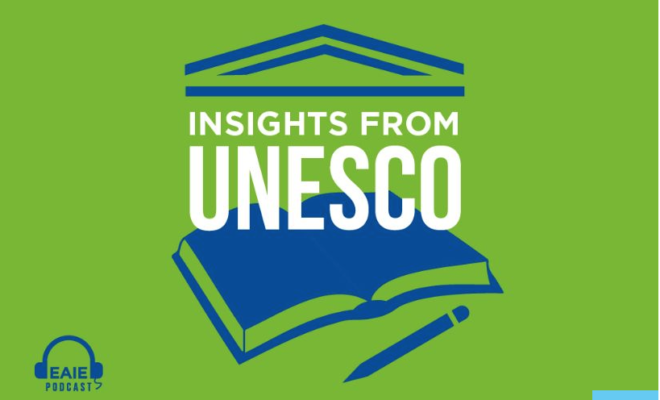Three webinars to reflect on the main challenges of higher education in Latin America and the Caribbean


Within the framework of the celebration of World Access to Higher Education Day, on November 26, 2019, the UNESCO International Institute for Higher Education in Latin America and the Caribbean (UNESCO- IESALC) will offer three webinars to present three central themes for higher education on a global scale: the challenges of academic mobility; recognition of studies, and equity and quality from the perspective of the III Regional Conference on Higher Education (CRES 2018). They will be broadcast in spanish on the UNESCO-IESALC YouTube channel.
The challenges of equity and quality
In a region that has more than 50% access to higher education, why is it that more than half of the students do not graduate? How and why do higher education systems fail? What are the major challenges facing higher education and how is the Latin America and the Caribbean region situated compared to the rest of the regions?
Beyond access: the challenges of equity and the quality of higher education in Latin America and the Caribbean from the perspective of CRES 2018 is the title of the webinar that will address the unequal growth of higher education in the region, and the consequent lag of more than about half of the student population between 25 and 29 years of age.
Débora Ramos (IESALC), will be in charge of this first webinar of the day. It will promote a reflection on these issues and a review of the treatment that was given to them during the debates of the III Regional Conference on Higher Education (CRES 2018), held in Córdoba, Argentina, in June 2018. The objectives and strategies that were considered in the CRES 2018-2028
Action Plan to tackle these challenges will be analyzed.
The CRES 2018 statement, the CRES 2018-2028 Action Plan and the CRES 2018 Collection were considered.
Challenges and opportunities of academic mobility
To what extent is the intensity of academic mobility in Latin America comparable to that of other regions? Which countries benefit from this mobility and why? From where do most students mobilize and to which countries and regions? What is the role of academic mobility in the construction of a space for Latin American higher education?
These are some of the questions that Dr. Francesc Pedró, IESALC Director, will try to answer in the second webinar of the day entitled Academic mobility in Latin America: challenges and opportunities, which seeks to build a diagnosis on its current state, recent evolution and future perspectives.
The magnitude of this mobility will be shown through figures and it will be compared to that of other regions, showing its evolution in recent years. It will also examine the destinations of this mobility, in the region itself or to other countries and regions, transcending a regional analysis. This will be carried out in order to understand regional mobility, globally considered, not only as a result of a concerted effort to promote it, but also as a result of the socio-economic and educational contexts of each country and of the public policies it has developed, in particular in relation to scientific research.
The different models that emerge from this analysis will also be presented, showing the diversity of mobility behaviors. The webinar will be completed with an analysis of the determinants of academic mobility and final considerations about its meaning in the broader context of the challenges posed by higher education in the region.
The UNESCO-IESALC report on which this webinar will be based is available in Spanish and English, under the title Higher education mobility in Latin America and the Caribbean: Challenges and Opportunities for a Renewed Convention on the Recognition od Studies, Degrees and Diplomas.
A new agreement for the recognition of studies in the region
What is the New Agreement for the Recognition of Studies and how would it benefit the region? When would it take place and what consequences would it have? How would students, teachers and the region benefit from it?
José Antonio Quinteiro Goris (IESALC) will be in charge of the day’s third webinar, The New Agreement for the Recognition of Higher Education Studies, Degrees and Diplomas in Latin America and the Caribbean. He will present the agreement signed in the city of Buenos Aires for thirteen (13) Latin American and Caribbean countries, and with it the expectations that open up for the future for a region whose academic mobility is one of the lowest in the World.
The historical progress of the New Agreement, which was conceived in 1974 and whose renewed text was signed in 2019, and the effect that its implementation will have on academic mobility in the region, will be examined. This is conditioned to further developments that derive from mutual recognition and that deepen the express and generic will that seals the Agreement. In this context, the IESALC strategy will be presented to catalyze the ratification of the new text and make it an instrument of full legal efficacy among its signatories.
Webinar schedule
First webinar: Beyond access: the challenges of equity and quality of higher education in Latin America and the Caribbean from the perspective of the CRES 2018
Speaker: Débora Ramos (IESALC)
Date and time: November 26, 2019 at 9:00 am EST
Route: IESALC YouTube channel
Second webinar: Academic mobility in Latin America: challenges and opportunities
Speaker: Dr. Francesc Pedró, IESALC Director
Date and time: November 26, 2019 at 12:00 m EST
Route: IESALC YouTube channel
Third webinar: New Agreement for the Recognition of Higher Education Studies, Degrees and Diplomas in Latin America and the Caribbean
Speaker: José Antonio Quinteiro Goris (IESALC)
Date and time: November 26 at 3:00 pm EST
Route: IESALC YouTube channel
RELATED ITEMS








